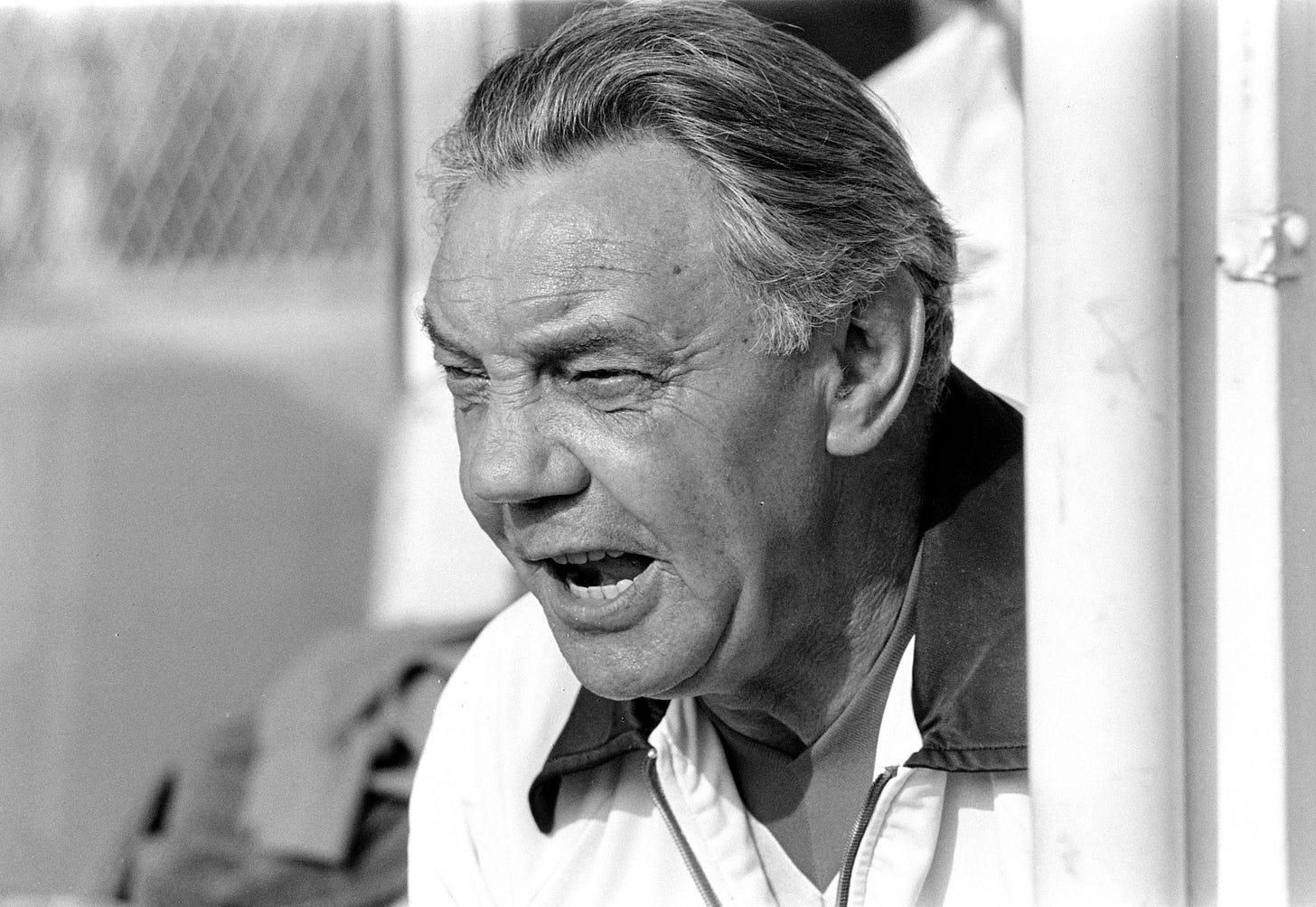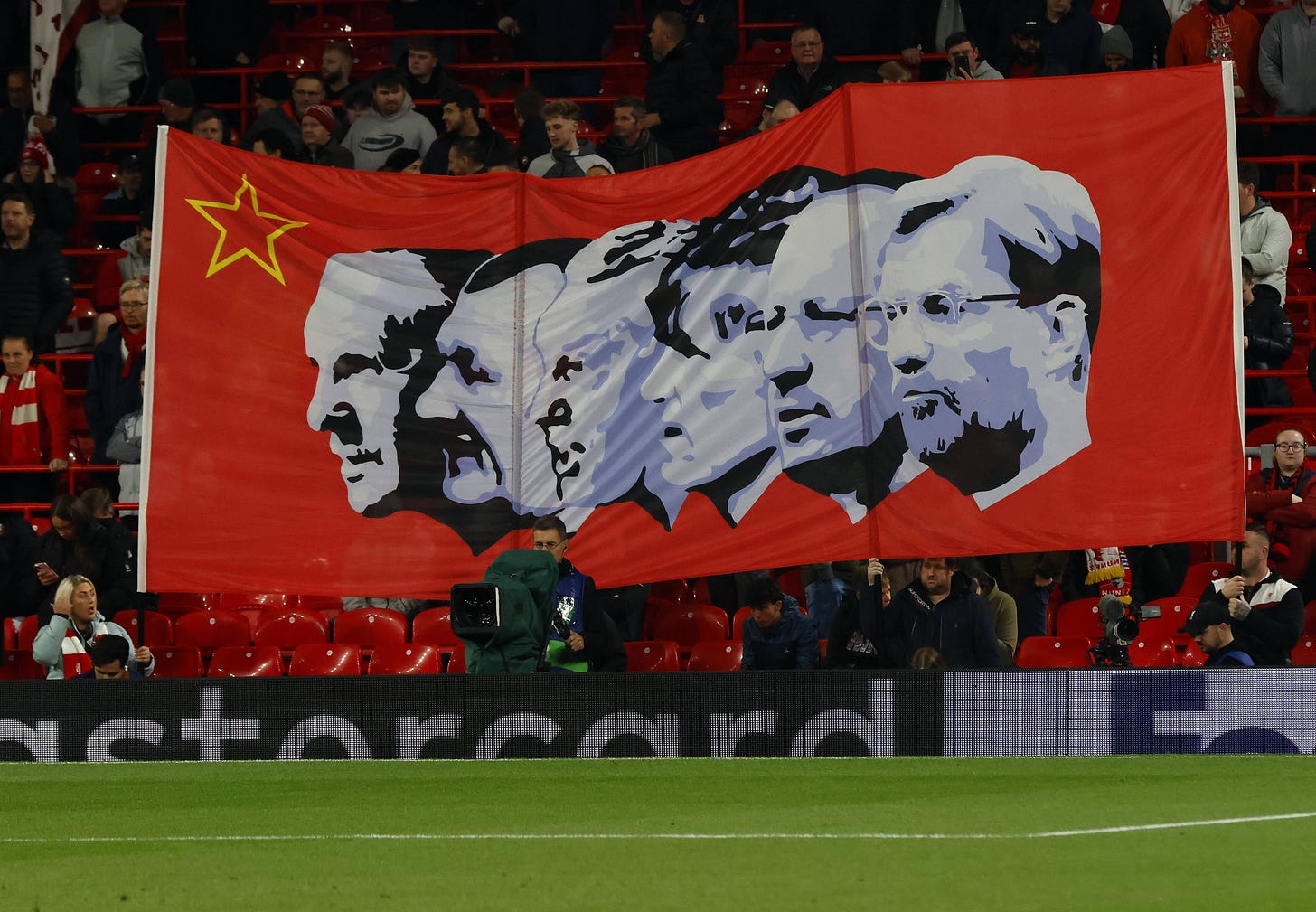"Just call me Joe" — 24 Years On, We Remember the Gentleman of Anfield
Marking 24 years since the passing of Joe Fagan, the quiet architect of Anfield’s greatness and the first British manager to win a treble.
There are days when the stories tell themselves, and there are others when you feel the weight of the telling. Today is the latter. It is twenty-four years since Joe Fagan left us, and though time moves forward, his place in the heart of Liverpool Football Club remains undiminished.
I was too young to fully understand what Joe meant when I first saw his name inscribed in the old footage, cigar in hand, modest smile stretched across his face, stood beside that grand European Cup in Rome. But with the years has come understanding, and with understanding has come a deeper respect. Not just for the trophies, though there were plenty, but for the man himself.
Joe Fagan wasn’t sculpted for the spotlight. He was never one to seek it. He came from humble roots in Liverpool and carried that humility through everything he did. He wasn't hired with a fanfare, and he didn’t leave with a parade. But make no mistake, he left with dignity, and that is a harder thing to hold.
By the time Joe became Liverpool manager in the summer of 1983, he had already given a quarter of a century to the club in the shadows, the boots and bibs of Melwood, the backroom meetings, and the endless whisperings on the training ground. He was the quiet heartbeat behind Shankly’s revival and Paisley’s dominance. It was Joe who kept things ticking, steady and strong, while the legends were being carved around him.
And then, when his turn came, how he stepped up.
One season, one treble, and a slice of immortality.
The First Division, the League Cup, and that unforgettable European triumph in Rome, all in one campaign. No British manager had done it before. No fireworks, no roaring speeches, just the steady hand of a man who knew football, knew people, and knew Liverpool.
We remember that team in 1983-84. They did more than most. They played for him, because they believed in him. Not out of fear, but respect.
He didn’t seek control, he earned it. There was no ego, only ethos. When it came to discipline, he didn’t shout. He didn’t need to. His players knew when they had let him down, because it felt like letting down your dad, your grandad, or your favourite uncle. He was that kind of man.
And then, two years on, when Heysel cast its terrible shadow, it was Joe who bore the burden. He had already decided the European Cup Final would be his last game. But no man should have had to end such a glorious chapter amidst such tragedy.
He wept when he returned home. Not for the trophies lost or the records that might have been, but for the lives lost, the pain, the shame, and the sheer sorrow that engulfed the club. The weight of it all broke something in him. You could see it.
In a story full of noise, Joe was the quiet page. The gentle voice in a room full of shouts. But when he spoke, people listened. Not because they had to, but because they wanted to. That’s leadership. Not the kind you read about in management books or watch in montages, but the real stuff. The quiet, steadfast kind that lasts.
When he stepped down in 1985, there were no headlines screaming for him to stay. No ticker-tape send-off. But Liverpool knew what it had lost.
Since then, the years have gone by. We’ve seen great managers come and go. Some have won everything, others have come close. Arne Slot now wears the badge and, remarkably, brought the title back to Anfield in his first season. It was a triumph built on modern thinking, yes, but also rooted in values that would not have looked out of place in Joe’s day. Humility. Hard work. Quiet conviction.
Joe wouldn’t have liked a fuss made today. That was never his way. But today, we make it anyway. Because some men deserve to be remembered. Not for the things they shouted, but for the things they stood for.
Jim Beglin said it best. “He had a lovely way about him... very gentlemanly. Underneath that soft exterior, there was also a hardened professionalism.” That was Joe. No bluster, no bravado, just pure, decent strength.
So we raise a glass today, not just to the manager who brought home a treble, but to the man who brought a lifetime of loyalty to this club. To the coach who walked beside giants but never demanded to be called one. To the manager who asked, quietly, after his final match, that the players call him Joe instead of Boss.
And so we will.
Just Joe.
Just one of the finest men Liverpool Football Club ever had.
May we never forget.
It was always...Liverpool



